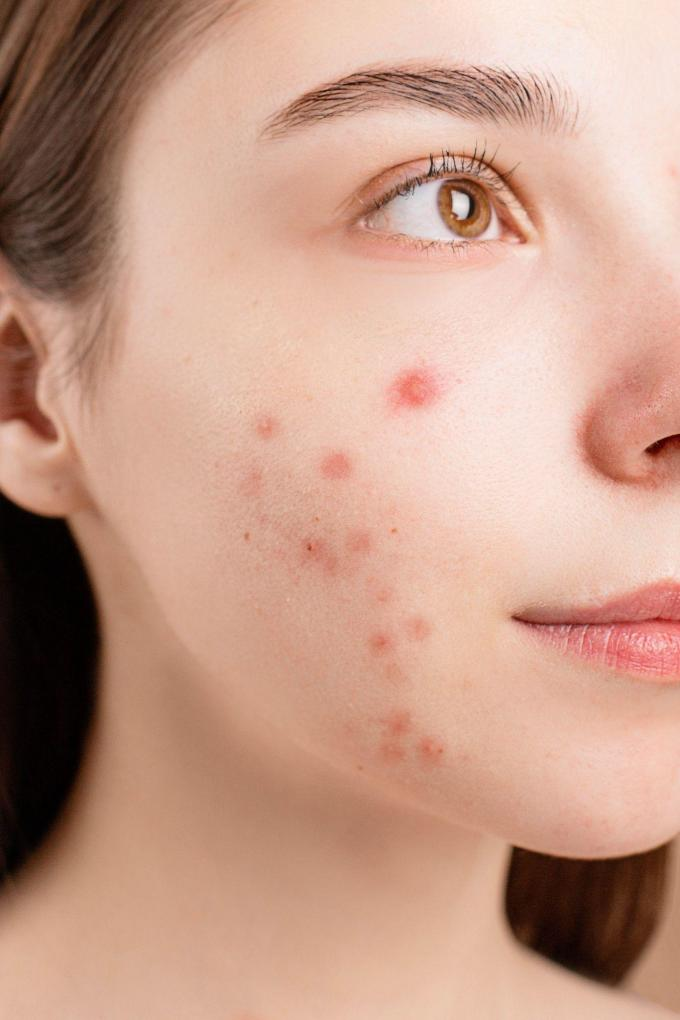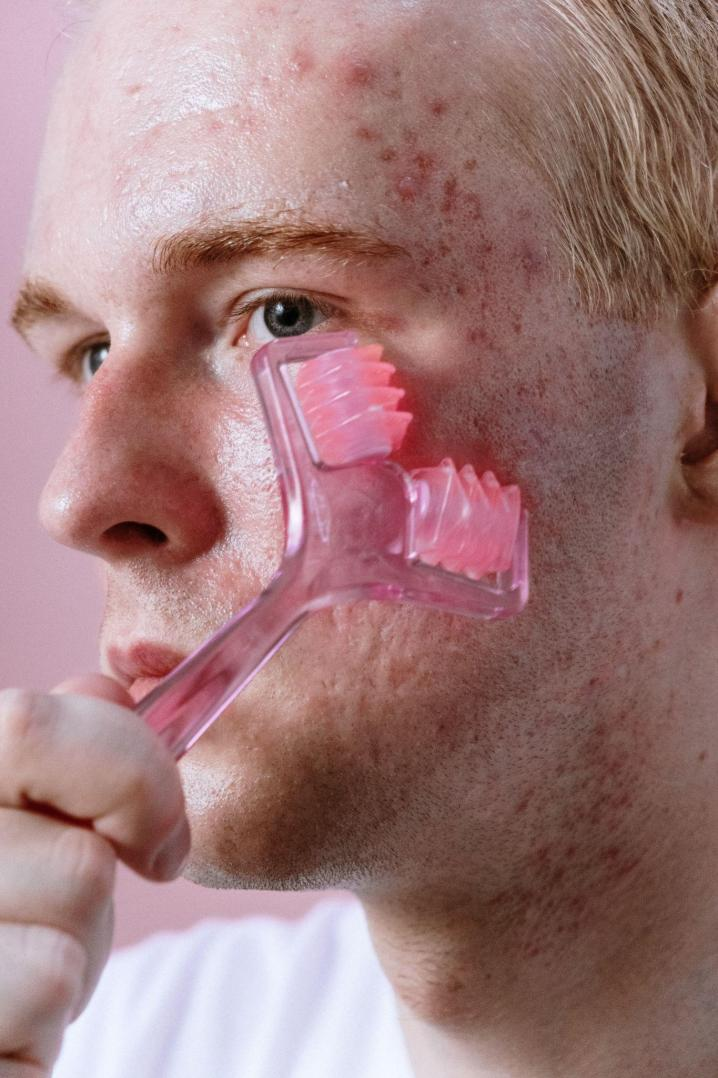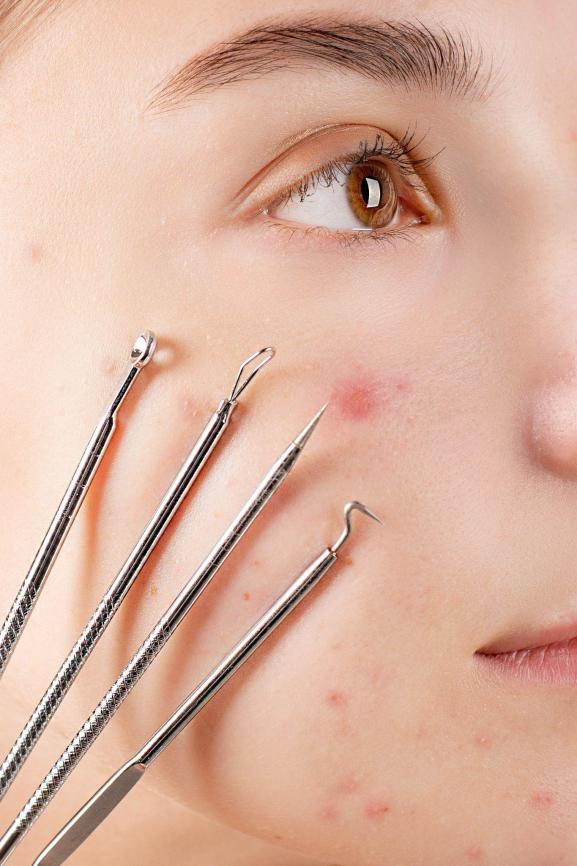Everything You Need To Know About Acne
About 50 million Americans deal with acne breakouts each year, most of them between the ages of 12 and 24. Acne is formed when excess sebum plugs the hair follicles. In some cases, acne can be genetic; in others, it can be caused by factors like a bad diet.
Although some people may face severe cases of acne, it can still be treated by taking the right measures. Here’s how you can identify and treat your acne.

Types Of Acne
Papules
This is the most common type of acne, known as pimples or zits. A small bump on the skin, approximately 1 centimeter big, can be considered a papule. These vary in colors and aren't contagious.
Hormonal disturbances usually cause papules, which is why they are common in young adults. Women also experience papule outbreaks during their menstruation cycle due to a drop in estrogen levels.
An overgrowth of bacteria is also why you can get a papule outbreak. If papules are exposed to bacteria, they can get inflamed and turn into cystic acne.
Pustules
This is another common type of acne that looks like a papule but is filled with a yellow substance called pus. Pustules are usually bigger and more inflamed compared to papules. Research shows that pus is your body's natural response to fighting bacteria.
Since pustules are usually caused by bacteria entering your clogged pores, they contain pus.
Blackheads
Even though we've all gotten them, most people still don't know that blackheads are also a type of acne. For some people, blackheads can appear on the nose or chin; for others, they can be scattered across the cheeks. Blackheads are formed when dead skin, dirt, and sebum clog up your pores.
The most common way to remove blackheads is by using pore strips. But even if you remove them constantly, blackheads tend to reappear if your pores are enlarged.

Cysts
This is a severe type of acne that looks like inflamed patches of pimples and pustules across the face. Cysts can be painful and are often formed under the skin. You need to be very careful with cystic acne, or it can get worse, especially if exposed to more bacteria.
If neglected, cystic acne can leave scars on the face.
Tips For Treating Acne
Use Gentle Skincare Products
It's best to avoid products that contain scents and alcohol because they can dry out your skin. This can further irritate acne and cause inflammation. Look for skincare products with ingredients like retinol and salicylic acid since they help unblock pores.
Tea tree oil can also be used because it contains antibacterial properties. However, avoid exfoliators since they can be harsh on the skin.
The best skincare products for acne are a gentle cleanser, moisturizer, sunscreen, acne patches, and any medication your online doctor may prescribe.
Avoid Touching Your Skin
When it comes to caring for your acne, this is a very important step. Touching your acne can expose it to bacteria, putting you at risk for a more severe outbreak. You may be tempted to pop any pustules or blackheads, but doing so can lead to acne scars.
Make sure your hands are clean before applying skincare products to your face. You should also regularly clean your pillow covers and hair and face towels since they tend to grow bacteria easily.
Get A Consultation With An Online Doctor
An online doctor can take a look at your acne and prescribe the proper medication accordingly. Most of the time, acne outbreaks can be dealt with by using skin or oral antibiotics like tetracyclines. If your acne is severe, your online dermatologist may ask you to get an acne extraction done.
You can also schedule frequent appointments to track progress and get urgent care if you have a bad flare-up.

Drink Loads Of Water
Staying hydrated is important in general, but it can also play a huge role in clearing up acne. Drinking water can purge bacteria from your skin and give your skin a healthy glow. You can also prevent future breakouts by keeping yourself hydrated.
Dehydrated skin tends to produce more sebum, leading to a higher chance of clogged pores and an acne outbreak. Drinking water can help balance your PH levels, which is why staying hydrated can keep your skin looking healthy.
Minimize Makeup Use
Many makeup products like foundation can be heavy on the skin and clog your pores further. But this doesn't mean you should throw away all your favorite makeup products. Instead, switch to lighter ones like BB creams that won't suffocate your skin.
Look for non-comedogenic makeup products as they are formulated without pore-blocking ingredients. Make sure you wash your makeup off before you sleep since it can trap bacteria on your skin. Another important tip to remember is to wash your makeup brushes frequently using gentle alcohol-free soap.
This can reduce your chances of getting a severe breakout. Avoid sharing makeup products like blush and concealer with other people.

Get Acne Treatment Online With A Virtual Doctor Today
Severe acne breakouts can be prevented with a proper skincare regimen. Take the first step by scheduling a virtual doctor appointment for your acne.
TelMDCare offers telemedicine consultations at affordable rates. Our skilled team of physicians and dermatologists provides virtual checkups and treatment. We also offer a complimentary follow-up with each visit.
Contact us here and learn more about our urgent care services.